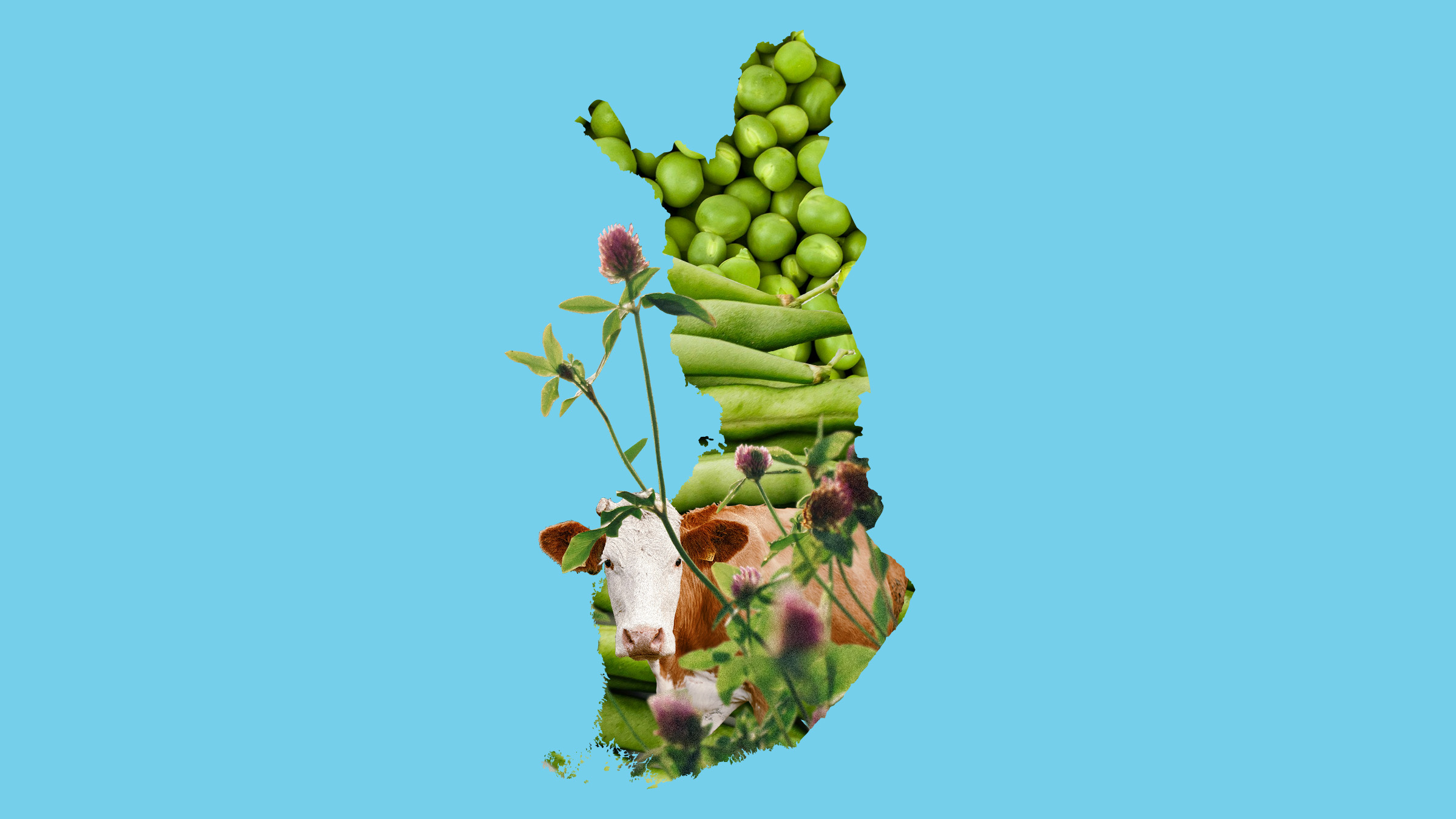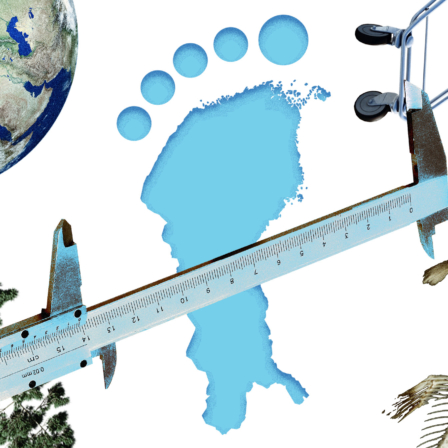With Russia’s war of aggression and the increasingly tense global situation, it is even more important for Finland to ensure sufficient domestic protein production under all conditions. At the same time, dietary recommendations encourage citizens to transition to a plant-based diet for health reasons.
A study (summary in English) commissioned by the Finnish Innovation Fund Sitra and carried out by the Natural Resources Institute Finland (Luke) says that domestic plant proteins may play a significant role in ensuring Finland’s protein self-sufficiency and healthy nutrition in the future.
According to the study, Finns consumed 233 million kilograms of protein last year. Of this, 38 per cent were plant proteins, and 62 per cent were animal proteins. Finns now need an estimated 185 million kilograms of protein each year. That demand will remain the same in 2040, the study estimates.
Luke’s research team calculates that the best-case scenario would allow Finland to increase the production of its domestic plant proteins to levels that would meet the estimated annual protein needs of Finns by 2040.
In terms of plant-based protein, Finland’s production is currently only 29 per cent in proportion to the entire protein consumption. According to Luke, it could be as high as 98 per cent. However, this change will require major efforts.
“For this to happen, we need action across the entire food chain. In addition to improving primary production and value chains, we need systemic changes to improve protein self-sufficiency. If this work succeeds, it can improve both the profitability of agriculture and Finland’s security of supply”, says Hanna Karikallio, Research Manager at Luke.
The issue is particularly topical this autumn when the Finnish nutrition recommendations will be updated. The Nordic Nutrition Recommendations published last year recommended a predominantly plant-based diet for health reasons. It includes a moderate amount of fish, dairy products and meat.
The transition requires ecologically sound, diverse farming practices
According to the study, it is possible to triple the current 100,000 hectares of domestic protein-rich crops such as peas, broad beans, rapeseed and canola to 300,000 hectares.
These plants were selected for the analysis because they are the most important domestic raw materials for plant-based protein products. In Finland, plant-based proteins are also obtained from bread grains, potatoes, fruits and vegetables and berries. According to the study, when these are accounted for, the total domestic production of plant-based protein could reach 228 million kilograms. This also opens up significant export opportunities for plant-based protein products.
“Diversifying crop rotations on farms also improves the condition of the fields, increases the carbon sequestered in the soil, and favours many beneficial organisms, such as pollinators. Improving crop security, plant breeding, good farming practices and water management in the fields, as well as better use of current and emerging technologies, will raise yields and contribute to improving protein self-sufficiency”, says Hannu Känkänen, Luke’s Senior Scientist.
Today, about half of Finland’s protein crop production meets the quality requirements of the food industry. Climate change will further increase the uncertainties involved in farming. It is likely that in 2040, part of the harvest will go unused for food. The most natural use for crops that are unfit for human consumption is as animal feed for livestock production. According to Luke, plant and livestock production support each other and together help to improve the self-sufficiency of protein production and Finland’s security of supply.
The study identified several bottlenecks for plant-based proteins
Increasing production in the fields alone is not enough to bring plant proteins to Finnish tables. Increasing the use of domestic plant-based proteins requires, among other things, significant investments in process technology, product development and commercialisation.
“The most significant of these measures are industry investments in the production of plant protein concentrates. Currently, this kind of production is almost completely missing in Finland. We also need profitable downstream processing of the side streams generated in production”, says Csaba Jansik, Senior Scientist at Luke.
Startups are also needed to expand the industry, bringing new types of plant-based products to the market with new ideas and innovations. In addition, it is important to expand the market for domestic plant-based protein products outside Finland to ensure the profitability of the value chain and sufficient sales volumes.
Finland has excellent prospects for success
The study carried out by Luke is a continuation of Sitra’s working paper (summary in English), which outlined guidelines for the sustainable transition of the Finnish food system by 2040. The working paper identified a lack of knowledge in Finland about protein self-sufficiency and the role of plant proteins in ensuring security of supply and nutrition.
Sitra’s Senior Advisor, Liisa Pietola, emphasises the need to adapt food production to within the limits of nature’s carrying capacity and the changing climate.
“Finland has excellent opportunities for transforming its food system towards sustainability. Sustainability means that we take care of people’s nutrition, security of supply, nature’s well-being and the economic profitability of farming. The agriculture of the future will be diverse and based on local nutrient and energy flows, which means domestic inputs”, says Pietola.
The study is linked to Sitra’s renewed strategy, in which one key objective is to strengthen the production of foresight information on Finland’s major future challenges and to offer solutions to them with partners.
Read more:
Download the publication: Kasviproteiini kasvun tiellä – Tiekartta ruoan korkeampaan kasviproteiiniomavaraisuuteen (summary in English)
Sitra working paper: Miten Suomeen rakennetaan kestävä ruokajärjestelmä? Ehdotuksia luonnon ja ihmisen hyvinvoinnin vahvistamiseksi vuoteen 2040 mennessä (summary in English)

















Recommended
Have some more.